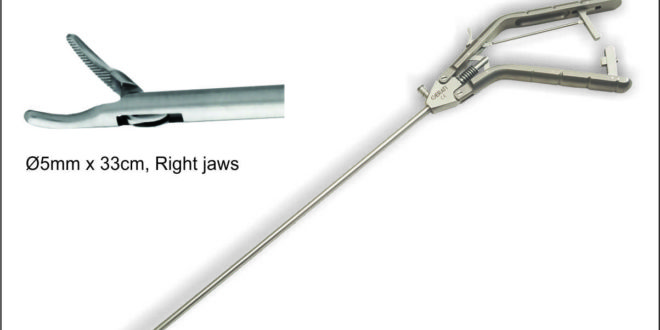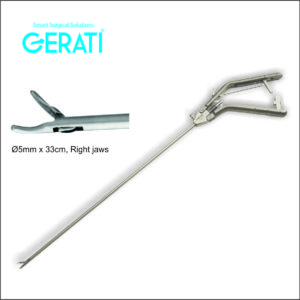Weight loss, waist measurement or BMI are quantifiable measures. They are useful instruments as part of the investigation. They are useful limits to determine the “suitability” for surgery. They are valuable when they are linked to the results and the improvement of health. In general, they are easy to measure, “monitor” and record. Most of us know that weight loss for many years has been recognized as having a significant and positive impact and improvement in many diseases and, therefore, in the prolonged life expectancy.
Advantages of Weight Loss
The advantages of a 10 kg weight loss are well known to health professionals and, for example, include:
- Decrease in total mortality 20-25%.
- Deaths related to diabetes decrease by 30-40%.
- Cancer deaths related to obesity decrease by 40-50%.
- The risk of developing diabetes decreases more than 50%.
The percentage of excess body weight lost related to the improvement of comorbidities supports the arguments for weight loss surgery, the financial support for interventions and, when used in correlation with the decrease in morbidity, adds weight to saving of costs and the development of bariatric services.
While recognizing the importance of this measure is possibly less important for the daily handling of an individual’s weight loss journey.
Changes that a Person feel during weight loss:
What changes for a person when they have lost weight vary and one can ask, ‘what is relevant to you now’? Does the patient measure success by% of excess body weight lost or does he look good, have more confidence or can he slip into a pair of jeans? Bariatric professionals should consider the complexities of an individual trip and look out for the simplistic excess of weight loss.
The bariatric professional should be aware that weight loss alone may not be the predominant significant factor for the patient, but that there may be significant personal areas that include, for example, gender, sexuality and relationship. People can grow in their understanding of their relationship to food and food and the associated thoughts, feelings and behaviors.
BMI Table:
Fitting into a BMI table may be important for a professional, but it has little value for the patient. ‘D’ was so delighted when she came to see me a few months after her trip change. “I’ve always wanted to be a big busty sexy size 16 and I am.” For ‘D’, its size is now who it is and not what an IMC table tells you what (and possibly interpreted as who) it should be. In fact, your BMI falls into the “obese” category according to a BMI table.
More valuable than any line in a BMI table, she has grown in a deep understanding of herself and the complex relationship with the foods she has used for so long. She accepts who she is and has changed her mentality. Your travel and understanding means that you are much less likely to use food for the same reasons you did before the operation. D has worked hard. Historically, health professionals have been included in those who are prejudiced against the obese. This prejudice includes hatred of behavior, size and intellectual capacity.
People who seek surgery may not be more “toxic” emotionally or intellectually than people who have not had surgery to lose weight or who have reduced their size by pharmacological or dietary methods. However, there has been a change in the body and a new size, shape and physical capacity brings new challenges both personally and socially.
Changes in Body:
It is probable that a reduced body size brings new qualitative, social, relationship, lifestyle, self-exploration and emotional problems that for some are unexpected. It is possible that some of these changes require individual or continuous treatment or understanding.
Outsiders can see an external physical change (or% weight loss) and praise weight loss. However, for many patients, the physical change is not seen, as there may be a degree of dysphoria associated with their body.
To maintain what has been achieved, patients learn to value more than just weight loss. A change of focus away from numbers is important for long-term maintenance, since a few numbers can trigger a lapse for some of those who have focused on the success of being linked to numbers. Today I am in the balance and weight 67kgs, my day is perfect! The sun shines, the birds sing and life is good. I walk with my shoulders back and with a bounce in my steps.
Tomorrow I am on the same scale and weigh 69 kgs. My day is a disaster, the sky is gray, the birds have flown to Siberia and life is very depressing. I bend over and I want to cry, run away, eat and hide, preferably under the comforter. Bariatric professionals focus on weight loss more easily than behavior change. If success is measured purely by the numbers on the scales, it is easy for an individual to slip into previous beliefs. The previous significant loss will be eliminated as the number ‘2’ is interpreted on a personal level.
“I am a failure, I have failed, I am fat and, therefore, I am not worth anything, I am useless and I want to flee, I am a victim of obesity”. Such extrinsic events are not interpreted separately from the individual self and there may be little clarity that an external event is not who the person is.
Obese people tend to judge and judge their own behavior. It is believed that many have poor problem-solving skills and are impulsive in behavior that is triggered by various stimulants: smell, taste, place, emotion. Coercion: ‘follow a diet’ can trigger negative reactions and the opposite effect can occur.
Bariatric Patients:
Bariatric patients are highly food-oriented as a reward or consolation and their sense of autonomy may not be present, as it has been destroyed by historical dietary rules and control by numbers, points or “sins”. The bariatric patient’s journey includes restoring a sense of autonomy and the professional requires skills to handle this. Weight loss surgery: whatever the type is just a tool, a vehicle to allow the physical self to become smaller.
No operation is a total cure and you cannot rely on 100% to change the mind and spirit of the body. The individual only has to change in the understanding of the “I” and develop individual understanding, new knowledge and behavioral changes.
People do not change or do things “because it’s good for them.” People do not change because their current situation hurts. These can motivate an approach to change, but it is a complex process of interweaving what it implies.
Weight loss surgery is not about weight and weight loss alone. Success does not need to be measured only by the numbers on the scale, but by what the individual sees as his victory.
Gerati is there for you to provide the right tools to you for surgery. Having latest instruments to provide ease for surgery. For detail information about instruments visit our website.

